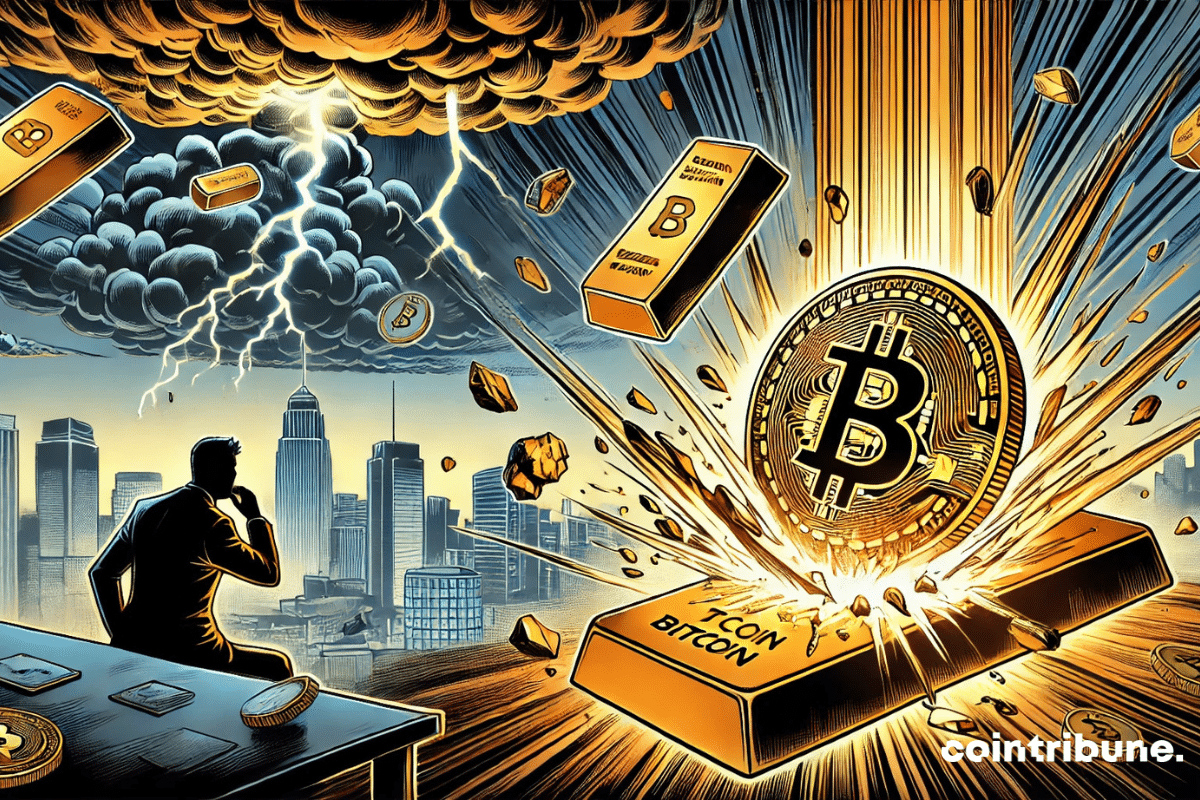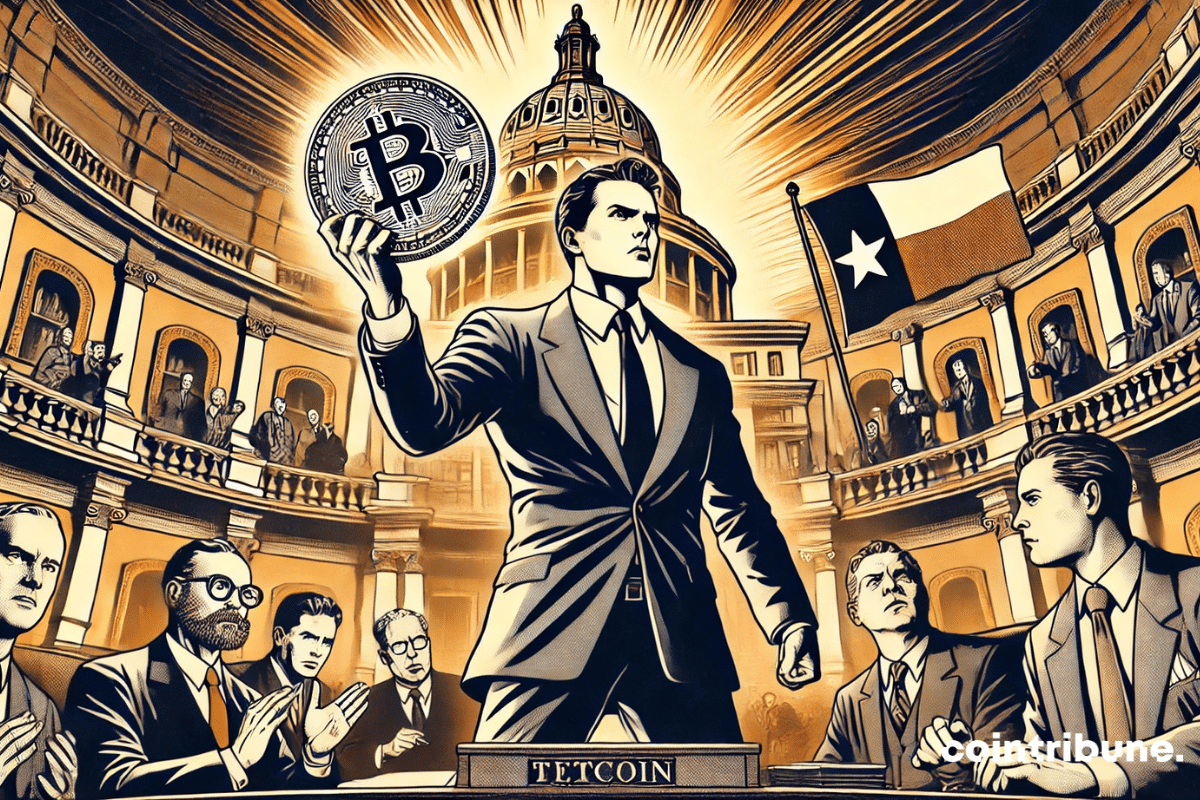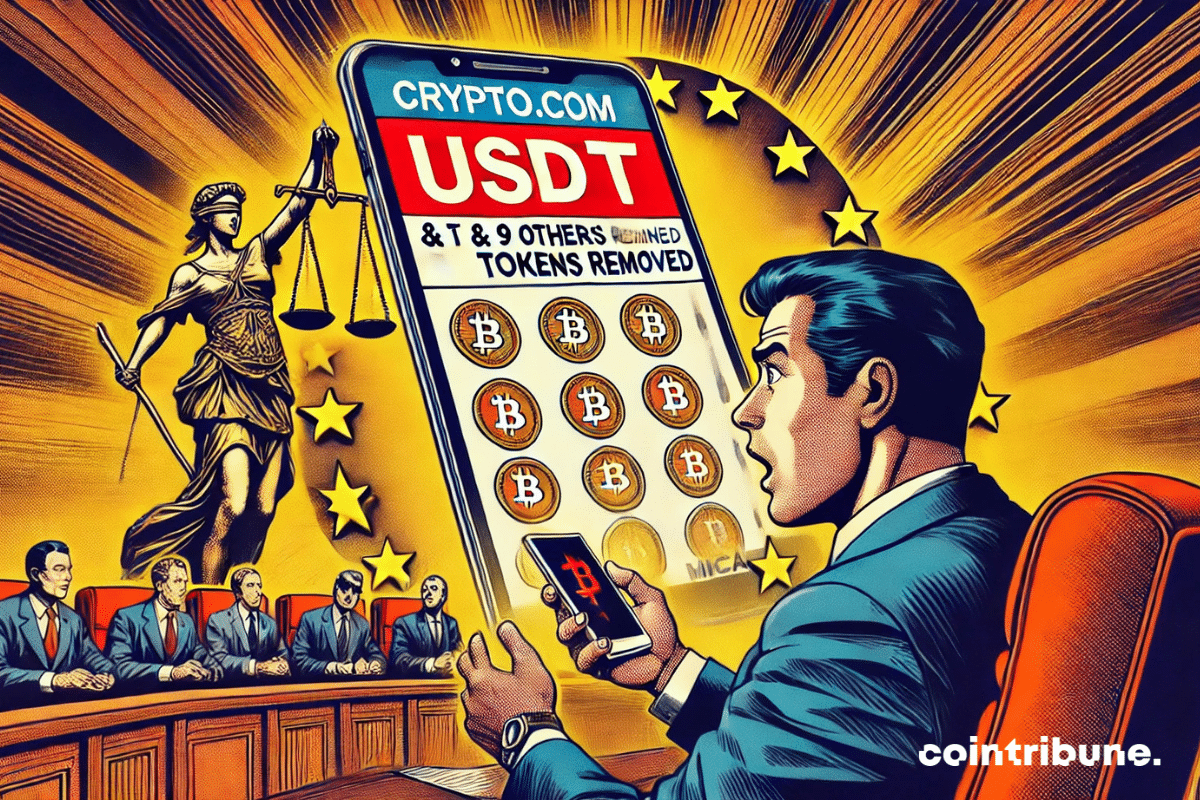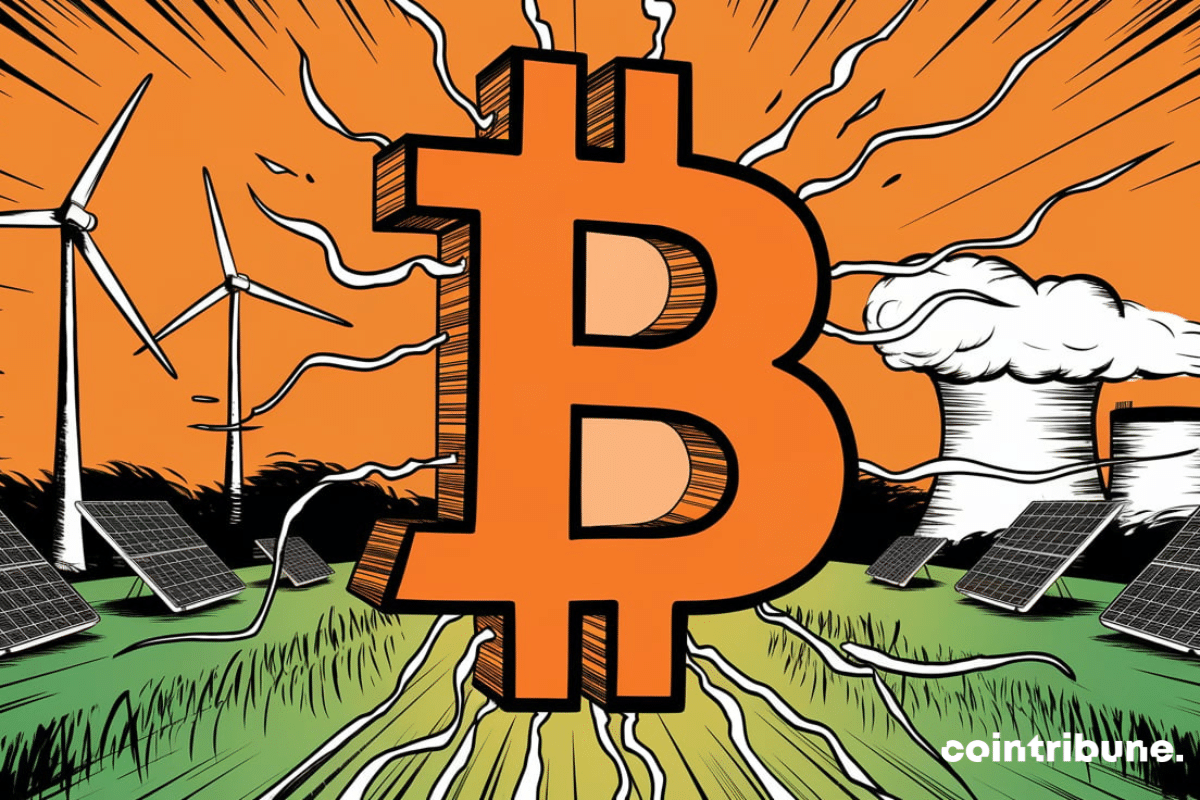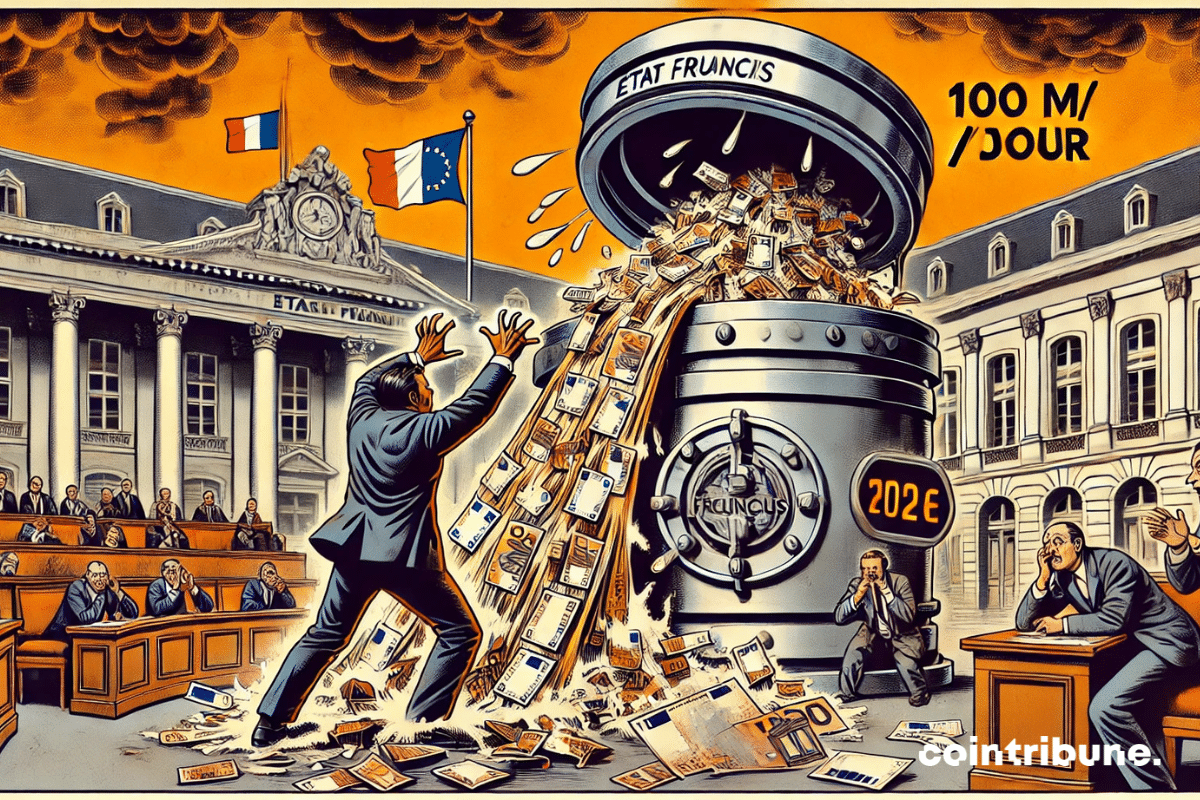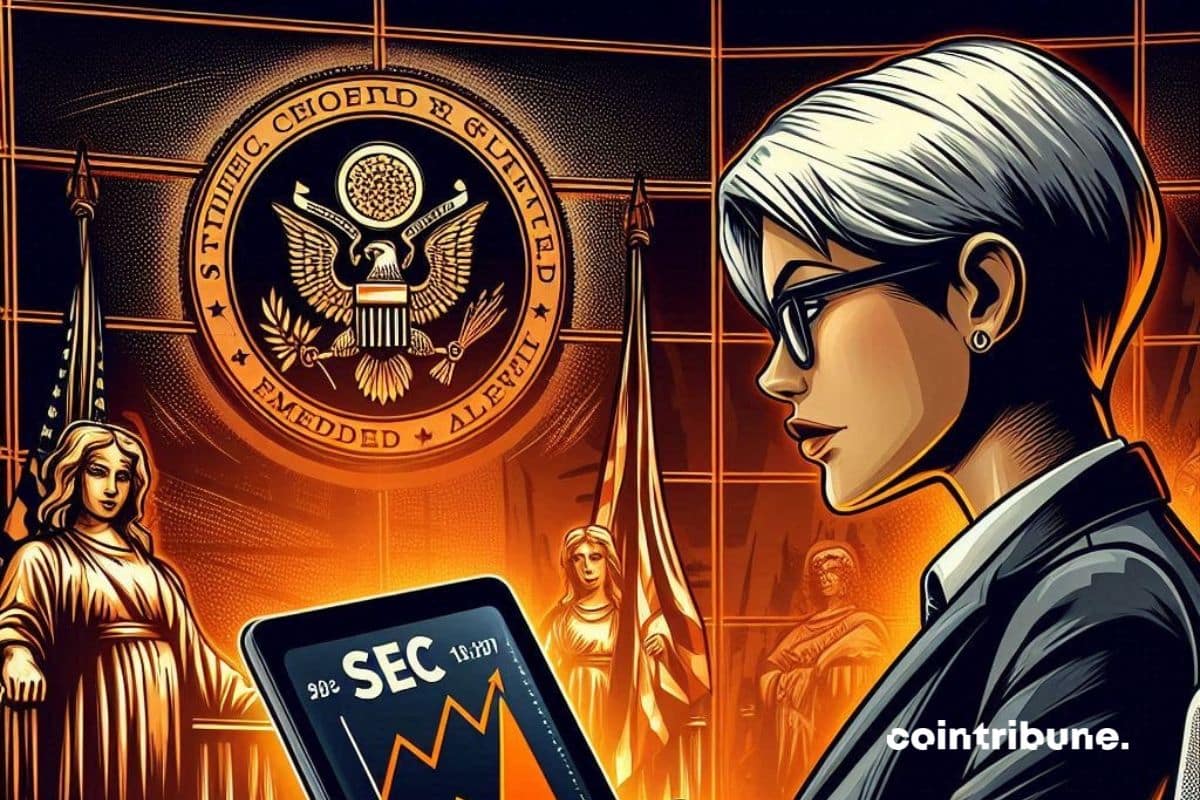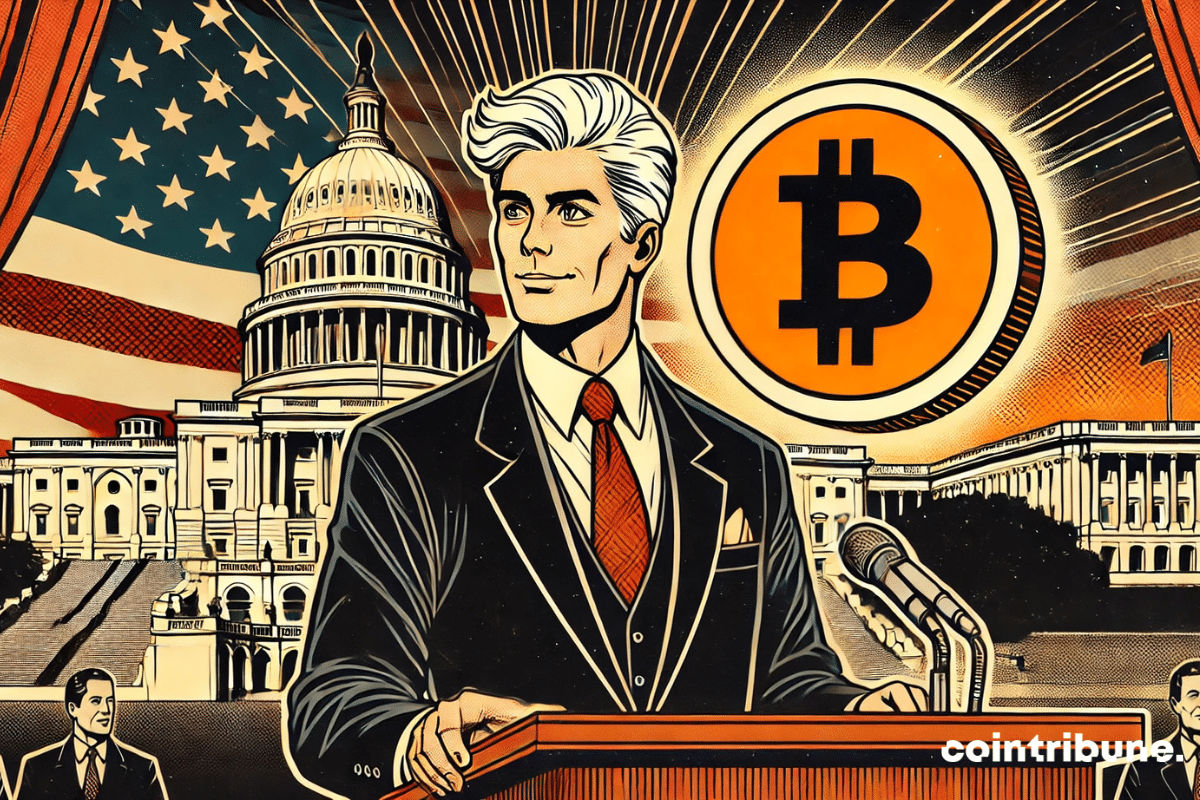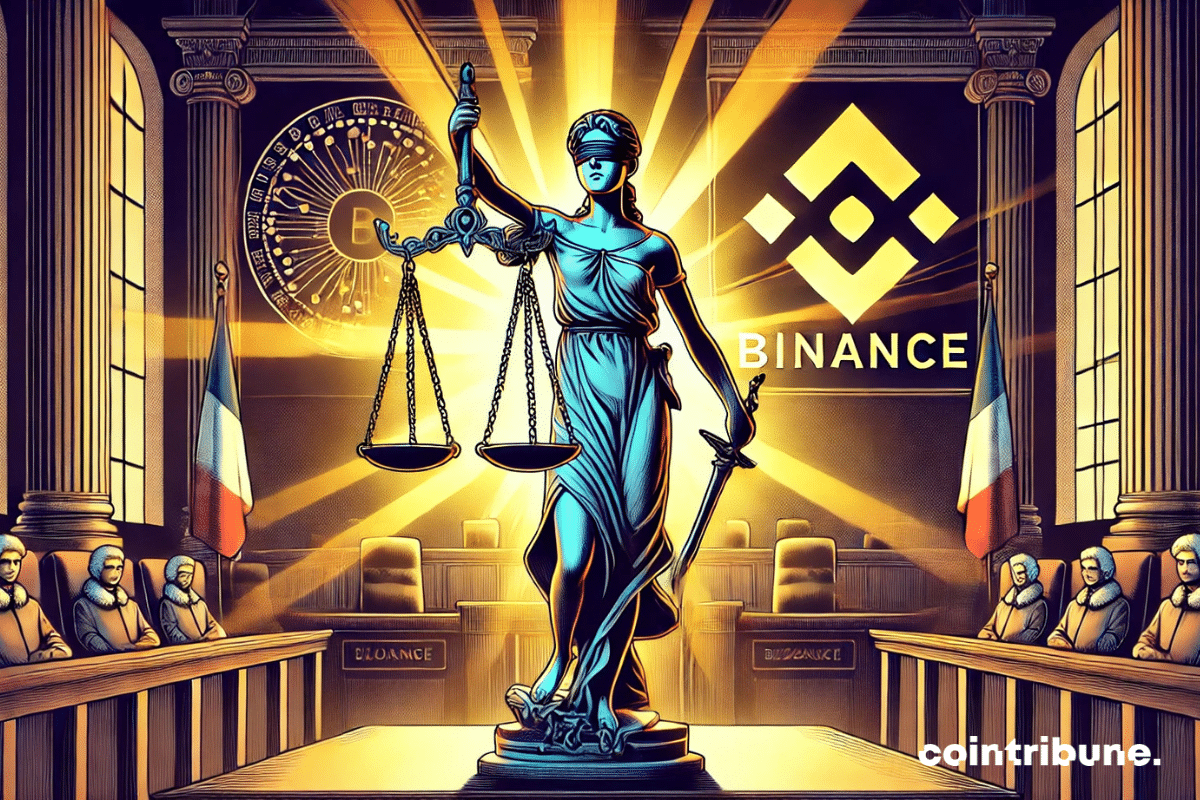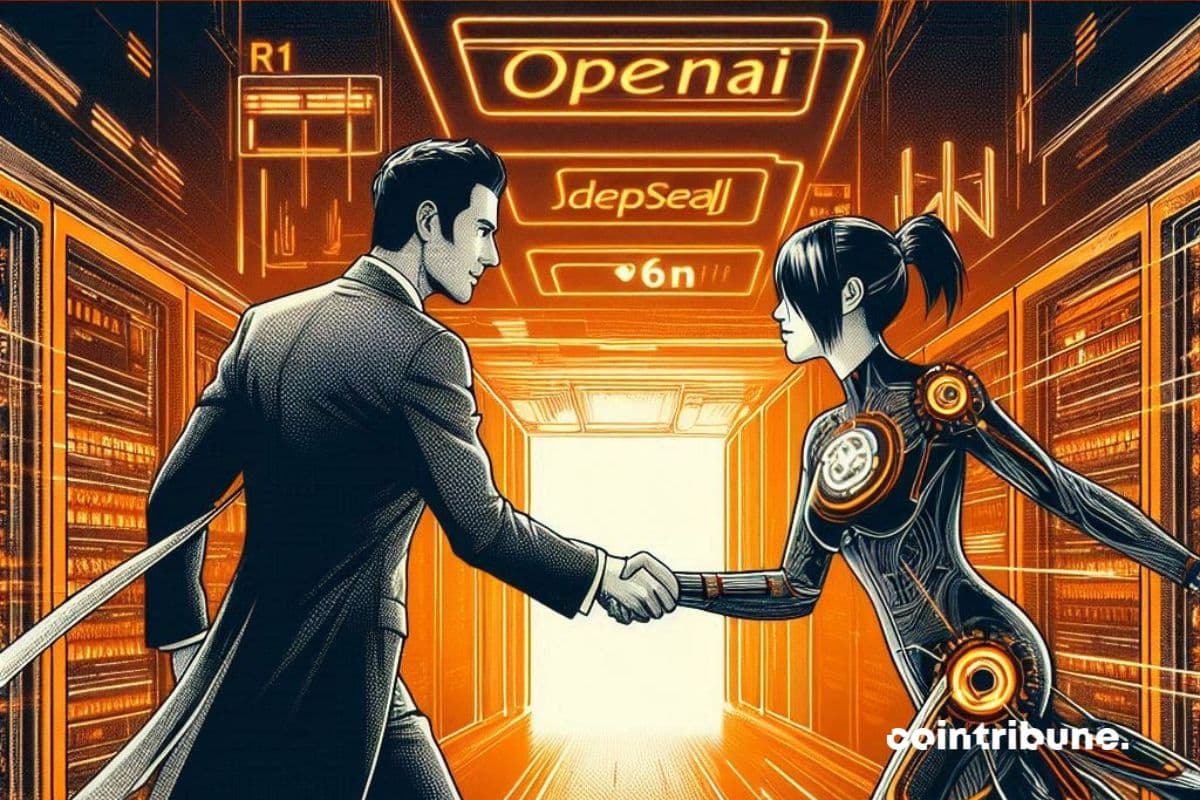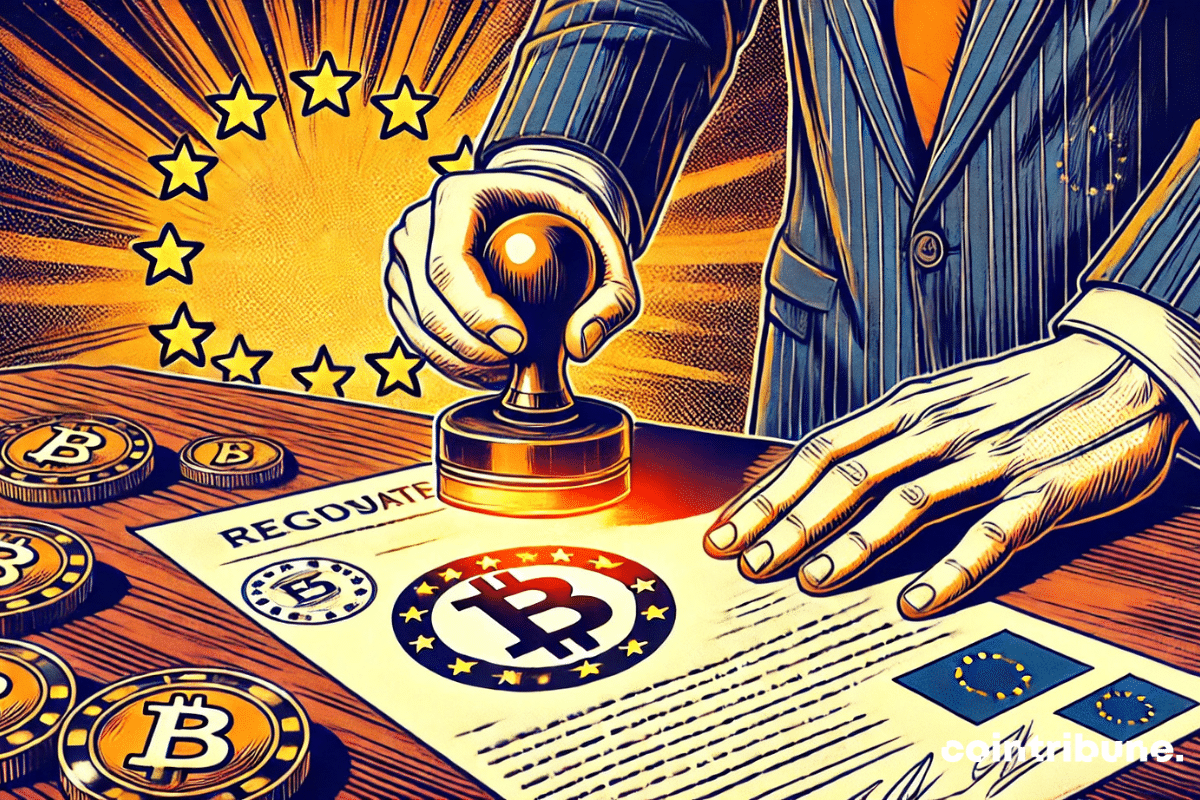Bitcoin, despite its 10% increase since January, could face a major correction as gold outperforms with annual gains of 20%. This inverse dynamic between the two assets raises concerns about an imminent reversal in the crypto market.
News
The Lone Star State could become the first American state to officially establish a bitcoin reserve. Dan Patrick, the Lieutenant Governor of Texas, has included this project among the legislative priorities for 2025, marking a decisive milestone in the institutional adoption of cryptocurrencies in the United States.
The President of the United States, Donald Trump, continues to expand his footprint in the crypto space by integrating his official memecoin, $TRUMP, into the sale of merchandise. Holders of $TRUMP can now purchase items such as sneakers, watches, and perfumes using this token. This initiative marks a significant evolution for the 47th president, who previously referred to the value of cryptocurrencies as "based on thin air."
Every decision made by the American Federal Reserve shapes the global economy and influences the cost of credit, the direction of investments, and the stability of financial markets. At its first meeting of 2025, the Federal Open Market Committee (FOMC) chose to keep interest rates unchanged, despite Donald Trump's persistent calls for monetary easing. This status quo caused a contrasting shock wave: stock indices, from Nasdaq to Dow Jones, closed lower, while Bitcoin surged by 2.5%. Thus, this movement underscores once again the unique trajectory of cryptocurrencies, which seem to diverge from traditional economic logics.
The European Union is intensifying its control over non-compliant stablecoins in accordance with its new regulations. Crypto.com has just announced the removal of Tether (USDT) and nine other cryptocurrencies in Europe, a decision that marks a shift for the sector. Such an initiative directly responds to the requirements of the MiCA regulation (Markets in Crypto-Assets Regulation), which imposes strict oversight of stablecoins and associated services. Following Coinbase, which removed USDT in October 2024, Crypto.com is following suit and imposing a precise timeline on its users. As of January 31, 2025, the purchasing and depositing of these assets will be banned on its European platform. Starting March 31, the remaining funds will be automatically converted into MiCA-compliant stablecoins. This removal goes beyond mere compliance. It reshapes the stablecoin landscape in Europe, where exchanges must now adapt to the new rules or risk sanctions. In a rapidly changing market, this announcement underscores the regulators' desire to impose a strict framework and raises uncertainties about the future of decentralized stablecoins in the EU.
Monetary tensions are intensifying as the BRICS accelerate their quest for independence from the US dollar. This dynamic is upending global economic strategies and prompting major powers to rethink their financial reserves. Currently, the Trump administration has announced the creation of a "strategic crypto stock," reigniting an explosive debate between bitcoin supporters and those of XRP. Some see it as an official recognition of the role of these assets in monetary policy, while others question which cryptos will actually be integrated. Beyond technological rivalry, this confrontation reveals major geopolitical stakes: the choice of the BRICS between bitcoin, XRP, or another crypto could reshape the balance of global reserves and redefine power dynamics among states.
When DeepSeek is siphoning the neurons from OpenAI, Microsoft cries foul, and the US Navy barricades its servers. The digital cold war is in full swing.
After Texas, Russia is also turning to the Bitcoin industry to balance its electrical grid and reduce costs. When will France wake up? And Germany?
The governor of the Czech National Bank, Aleš Michl, recently proposed an ambitious plan to invest up to 7 billion dollars in Bitcoin (BTC) as part of the bank's reserve diversification strategy. This proposal, which will be presented to the bank's board of directors on January 30, 2025, could make the Czech National Bank the first European central bank to invest in Bitcoin.
On January 28, 2025, the Cboe BZX exchange filed new ETF applications focused on Solana for Bitwise, VanEck, 21Shares, and Canary Capital. Following a disappointing outcome in 2024, these initiatives aim to revive the SEC's review, marking a significant milestone for crypto adoption in traditional financial markets.
Nvidia stumbles, Bitcoin shudders. When 600 billion goes up in smoke, the flagship crypto feels the change in the wind. And if the golden future of BTC were to emerge from the ashes of tech?
The crypto market alternates between spectacular surges and abrupt corrections, and Solana is no exception. After a tumultuous start to the year marked by heightened volatility, the SOL token has lost 17.2% in just three days, bringing its price down to $235. This drop, although brutal, does not solely summarize the situation of the ecosystem. Behind the decline in price, contrasting signals are emerging. On one hand, on-chain activity is collapsing with a 40% drop in transaction volumes, weakening major platforms like Orca (-62%) and Meteora (-45%). On the other hand, Total Value Locked (TVL) soars by 27%, surpassing Ethereum and BNB Chain, thanks to platforms like Raydium and Binance Staked SOL. Thus, investors are still hesitant to bet on a true rebound. Three key factors will determine whether Solana can reverse the trend and return to its historic highs.
The Arizona Senate takes a historic step towards institutional adoption of cryptocurrencies with the advancement of a bill allowing the state to invest up to 10% of its public funds in bitcoin. This initiative could trigger a wave of similar adoption in other U.S. states.
The employment situation in France is experiencing a worrying deterioration. According to the latest figures published on January 27, 2025, by the Ministry of Labor, the number of unemployed job seekers without activity (category A) surged by 3.9% in the fourth quarter of 2024 compared to the previous quarter. This represents an additional 117,000 unemployed individuals, bringing the total to 3.1 million people, a level not seen in a decade, excluding the Covid-19 period.
Bitwise, a crypto asset management company, recently filed an application with the Securities and Exchange Commission (SEC) to launch an exchange-traded fund (ETF) based on Dogecoin (DOGE). This initiative marks an important step for Bitwise, which had already registered a Dogecoin trust in Delaware earlier this month.
For several decades, French budget management has been a source of recurring tensions, but the current situation has reached an unprecedented level. In 2025, the censorship of the budget voted by the Senate plunged the country into a major financial crisis, with losses estimated at 100 million euros per day. In the absence of a new text validated by the National Assembly, the budget for 2024 remains in effect, depriving the state of essential revenue and savings measures. Amélie de Montchalin, Minister for Public Accounts, warns about the repercussions of this deadlock and emphasizes both its economic cost and the institutional challenges it reveals.
Tuttle Capital Management recently filed for the launch of 10 leveraged crypto ETFs, including the memecoins $TRUMP and $MELANIA, created by current U.S. President Donald Trump and First Lady Melania Trump. These leveraged ETFs aim to amplify the daily returns of the underlying assets, thus offering potentially high profit opportunities but also increased risks for crypto investors.
The U.S. Senate approved on January 27 the appointment of Scott Bessent, a hedge fund manager and staunch advocate of cryptocurrencies, to the strategic position of Secretary of the Treasury. This choice, backed by Donald Trump, marks a potential turning point in the economic and crypto policy of the United States.
The global crypto industry, already under pressure from increasingly strict regulations, is once again shaken. Indeed, French authorities have just opened a judicial investigation targeting Binance, the world leader in crypto exchange platforms. This procedure, which is based on serious accusations such as money laundering, tax fraud, and drug trafficking, highlights the growing tensions between regulators and players in a sector still seeking clear legal frameworks. While Binance denies these allegations, this case could tarnish the platform's image, but also redefine the rules of the game for the entire industry.
When Musk invites Nakamoto on board, the markets tremble. Between humor and strategy, Dogecoin rises, buoyed by a breeze of euphoric speculation. The mystery thickens, profits are displayed.
Runbot, an innovative automated crypto trading platform, announces a strategic partnership with IBC Group as part of its accelerator program. This partnership marks a decisive step in Runbot's mission: to make automated trading accessible to everyone, regardless of coding skills.
A Chinese startup is redefining the stock market and AI, causing Nvidia to drop by 17%. Details in this article!
The world of crypto, known for its excitement and technological advancements, is once again confronted with a wave of sophisticated scams. Currently, the rapid rise of DeepSeek AI, a Chinese artificial intelligence application that went viral after its launch on January 20, marks a turning point. This popularity, which has propelled the app to the top of the App Store downloads, has also attracted the interest of fraudsters. In just 24 hours, no fewer than 75 fraudulent tokens have been created, exploiting DeepSeek's notoriety to target unsuspecting investors. This phenomenon illustrates how quickly scammers adapt their methods to take advantage of emerging technological trends.
When Solana plays with billions, memes lurking, and stablecoins in abundance, the giants waver. Crypto turns heads and algorithms.
Sam Altman, the CEO of OpenAI, recently praised DeepSeek's R1 model, a Chinese startup specializing in artificial intelligence, calling it "impressive." This recognition comes after DeepSeek revealed that training its R1 model cost less than $6 million, a fraction of the cost of equivalent models in the United States. However, this development could be fatal to the crypto market.
The recent drop of Bitcoin below the symbolic threshold of $98,000 has caught the attention of investors. On-chain data, however, reveals a remarkable absence of panic selling, suggesting a temporary correction rather than a major trend reversal.
As Bitcoin remains at the heart of discussions about the future of the global financial landscape, MicroStrategy is ramping up its commitment and announcing a new ambitious initiative. The American company plans to raise funds through an offering of 2.5 million preferred shares, a mechanism designed to finance the acquisition of new bitcoins and bolster its operations. This move, driven by a clear strategy of diversification around cryptocurrencies, comes in a context of declining revenues and shrinking profit margins. By choosing Bitcoin as the cornerstone of its treasury, MicroStrategy reaffirms its long-term vision and raises questions about the potential risks and repercussions of this bold model.
Ripple, the crypto service provider, recently announced that it has obtained money transmission licenses (MTL) in the states of New York and Texas. This strategic expansion enhances Ripple's presence in the United States, bringing the total number of its MTL licenses to over 50 in the country.
OKX and Crypto.com obtain their MiCA licenses. They gain access to 400M customers in 30 European crypto markets. Details here!
For several decades, global economic alliances have been evolving due to geopolitical and economic transformations. The BRICS bloc embodies this dynamic through its expansion to new members in order to consolidate its influence on the international stage. In 2023, Saudi Arabia, the world's largest oil exporter, received an official invitation to join this strategic alliance. However, unlike other countries such as Iran or the United Arab Emirates, which quickly accepted, Riyadh is adopting a cautious stance. Faisal Al-Ibrahim, the Saudi Minister of Economy and Planning, emphasized that the kingdom continues to carefully assess the implications of membership. This strategic choice raises questions about Saudi Arabia's true intentions and its future role in this new economic balance.
